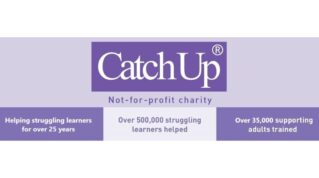You know better than anyone that there’s been a lot of disruption over the last few years, but we’re here to help you move forward.
We’ve heard from schools across the country that building students’ knowledge, skills and confidence is key to helping everyone recover from the pandemic and prepare for their next steps.
We’re here to highlight one of our key intervention solutions for KS3 to KS4 transition, which supports struggling learners working behind Age Related expectations, and children with longer-term special educational needs. To help you access these resources, the Government’s Recovery Premium will provide all eligible schools with additional money to support children and young people’s wellbeing and educational recovery. You can find out more about the Funding for Education Recovery here.

And that’s where Rapid Plus can help you…
Rapid Plus is a collection of resources – texts, in-built text support, comprehensive teaching notes and a digital subscription that enable you to support students across the whole range of GCSE English Language requirements that will give them the best possible chance to achieve that coveted Grade 4 at GCSE.
The first priority in any support materials for Key Stage 3 or 4 is that they appeal to the students. We all know that if students are not engaged, then they are not going to be motivated to improve. Rapid Plus has high-interest, visually appealing, age-appropriate texts that have been finely levelled to match the needs of underperforming students.
The lowest level Rapid Plus texts are for students with a Reading Age of 6.6 and the highest level texts are for students with a Reading Age of 9.6. The texts are short and because of the careful progression in difficulty, students quickly experience real success in reading which boosts their confidence. Although short, the Rapid Plus texts are full of content for discussion about characterisation, plot devices and themes.
But Rapid Plus isn’t just about reading books – it’s about all the other reading skills – revisiting, reflecting and responding both orally and in writing.
| GCSE English Language | Rapid Plus |
| Fictional texts | 44 stories from Level 3 (Reading Age 6.6) to Level 9 (Reading Age 9.6) |
| Creative reading | Text comprehension questions – literal, inferential and personal response on each Fiction and Non-fiction Quiz pages |
| Non-fiction texts | 44 texts from Level 3 (Reading Age 6.6 to Level 9 (Reading Age 9.6) Non-fiction features explored on each Quiz page |
| Descriptive writing | Follow-up photocopiables for each text covering word-level skills and extended writing |
| Vocabulary | Vocabulary questions on the Quiz pages of each Plays (Rapid Plus 7-9) |
| Standard English | Follow-up photocopiables focusing on grammar |
| Responding to questions | Detailed guided reading notes for each text Guidance for using evidence from the text to answer questions |
| Presenting | Plays to read in each Rapid 7-9 book which provide the opportunity for students to practise fluency and build self-confidence in reading aloud |
With Rapid Plus, students get to practise all these skills reading texts they enjoy and where they know themselves to be successful. For more information and further support for transitioning to KS4, you can read the full blog from Dee Reid, founder of Catch Up here.
















Your thoughts